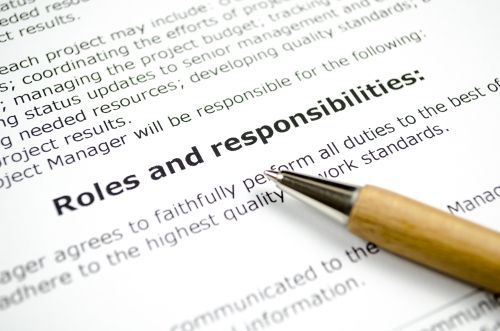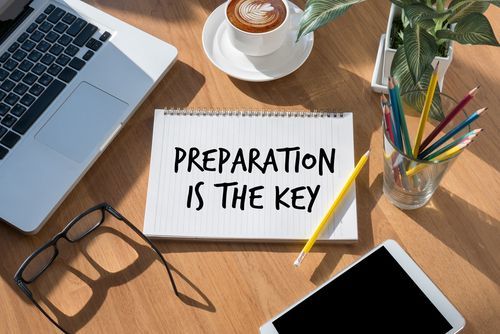
2020 has changed the way we work. Virtual interviews, once a last resort with which to fully qualify applicants for a permanent position, have become de rigueur.
Where previously candidates walking into an interview could gain a certain amount of assurance from the intuitive nature of face-to-face communication, virtual meetings require a greater level of engagement to achieve the right rapport. The following principles are worth bearing in mind when preparing to impress your potential employer - monitor to monitor:
First Impressions Count
- Dress to the same standard that you would to attend a face-to-face interview.
- Test your tech; mic, speakers, and trial run the interview application if unfamiliar.
- Consider your surroundings: check you are not pictured too dimly nor so brightly that light causes a glare. Try to minimise opportunities for background noise or interruptions.
- If you are prone to distraction by seeing yourself, change your preferences so that you can focus on your interviewers.
- Make sure you are prepared a few minutes in advance of the interview time slot, as you would arriving to a face-to-face meeting.
- Be informed by your interviewer’s approach in terms of degrees of formality; always erring on the side of caution.
- Introduce yourself clearly and try to instil confidence and engagement.
- Maintain eye contact to camera rather than screen.
Research, Research, Research
Whether it’s a formal interview or an informal ‘chat’, researching the business in question cuts both ways. Researching a prospective firm isn’t solely about understanding who they are and demonstrating that you know this; it can also be of huge value to you to reaffirm your application.
Consider:
Does your research suggest that the company works to your values and aspirations? Do their current projects / publicity appeal to you; have you notice things that impel you to find out more? Do you have employees/ ex-employees or clients within your connections that you could reach out to?
Your application may not of course have been prompted by the vacancy of a particular organisation. Your desired role might simply be to work as a Building Control Surveyor, for instance, operating within your local area as far as possible, in return for competitive remuneration. Irrespective of the company involved. Carrying out research is still a prerequisite as it demonstrates your engagement with their organisation in particular. Even if you feel confident that you know how they operate, try to identify aspects that make their organisation stand out. They will appreciate the attention to detail as it conveys some initial investment from you in them.
Research Checklist:
Can you articulate a clear outline of their business model: the service(s) they offer and how this is achieved.
Are you aware of projects, methods of working or current clients’ key to the business? This demonstrates you have an up-to-date impression of the company and where it’s going.
Who are their competitors? This conveys genuine engagement and shouldn’t be underestimated.
Try to gauge it in terms of how the interviewers respond. If they show interest in your overview, provide more detail. If they seem satisfied and don’t prompt further, keep it short and sweet.
Conduct a close reading of the Job Description

Rather than avoiding aspects of the description that sound unfamiliar or outside of your prior experience, if you are unsure about any aspects of the role research these ahead of time.
Don’t be afraid of questioning your point of contact in relation to the application and ask for clarification on any aspects you are unsure about.
Rather than exposing a lack of knowledge it has been proven in my experience to demonstrate to the organisation your engagement and motivation to be suitably prepared.
I worked with a Senior Inspection Manager who was unsure about a specific inspection system referenced in the responsibilities of the role.
The Inspector impressed me by contacting me unprompted to run through the Job Description ahead of their interview, evidencing their capability to fulfil each duty, but pointed out the detail they were unsure about. They were fairly confident the inspection system was similar to their current role but the terminology made them uncertain. They asked me to contact the employer to check the two systems performed the same function and operated similarly. The employer was impressed with their active engagement in advance of the meeting and affirmed the candidate’s understanding. The inspector was then able to attend the interview with the confidence that the specified requirements were within their capability, enabling them to focus on how they can best present themselves and their relevant experience.
Pre-prepare examples - loosely

You want to be able to articulate your relevant experience clearly, but without sounding wooden. Consider how you can refine relevant projects/experiences into succinct summaries that give context, convey your input and show the end result.
Utilise the Star Technique to keep your examples clear and to the point:
Situation: Describe the situation and when it took place
Task: Explain the task and what the goal was
Action: Provide details about the action you took to attain this
Result: Conclude with the result of your action
So for instance if a requirement of the role is to demonstrate ‘excellent relationship-building skills’, affirm it with an example:
S --- A qualified inspector I represented previously drew upon a past experience in which an established client was extremely dissatisfied that their plans had not been approved du to regulatory issues.
T --- Their responsibility was to sign off a compliant plan that suited the clients’ preferences.
A --- They initially acknowledged and reaffirmed the client’s aims and communicated their desire to reach a mutual outcome. They were able to problem solve some alternative routes to compliance.
R --- The result was greater client satisfaction than if the project had ran smoothly.
Interviewers will not only be looking for relevant experience but will also be analysing your perception of what’s relevant.
* * *
Following the advice above should stand you in good stead to tackle your interview.
Further advice can be found on our career blog.
To discuss how I can support you to secure your next role, please contact 01283 499820 or Hannah.Lakin@professional-technical.com.


